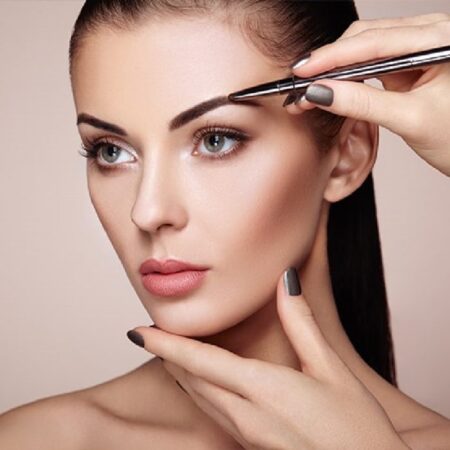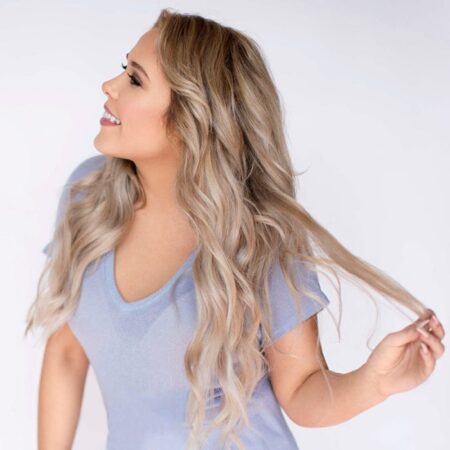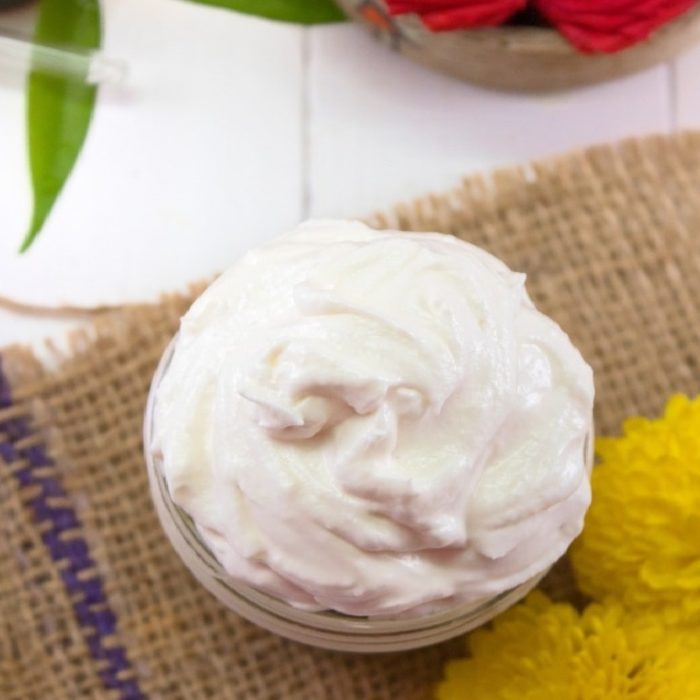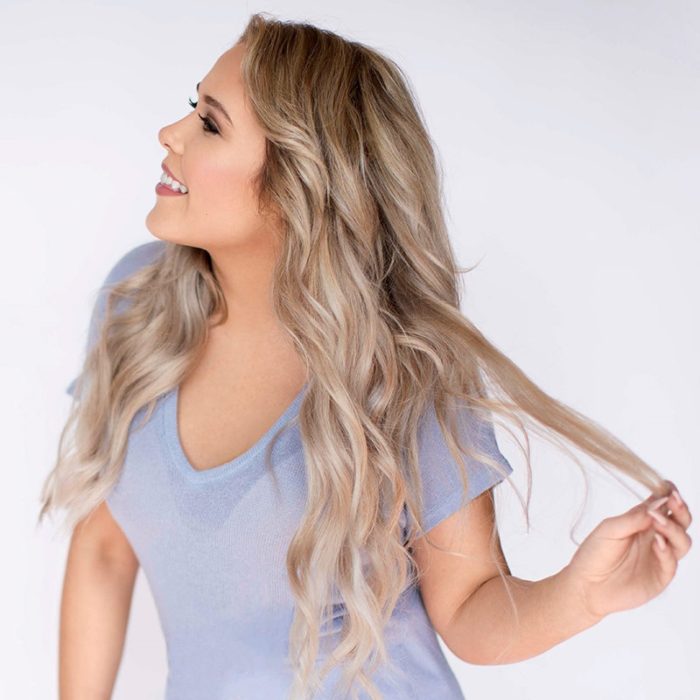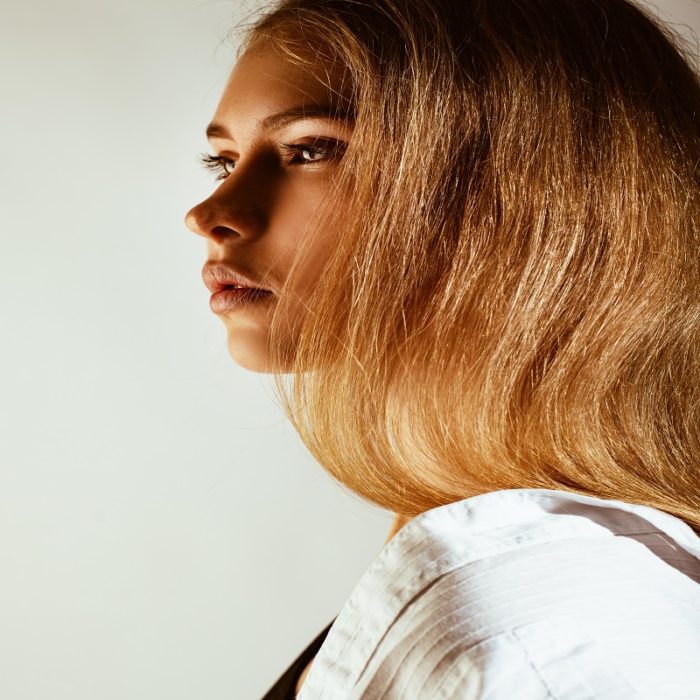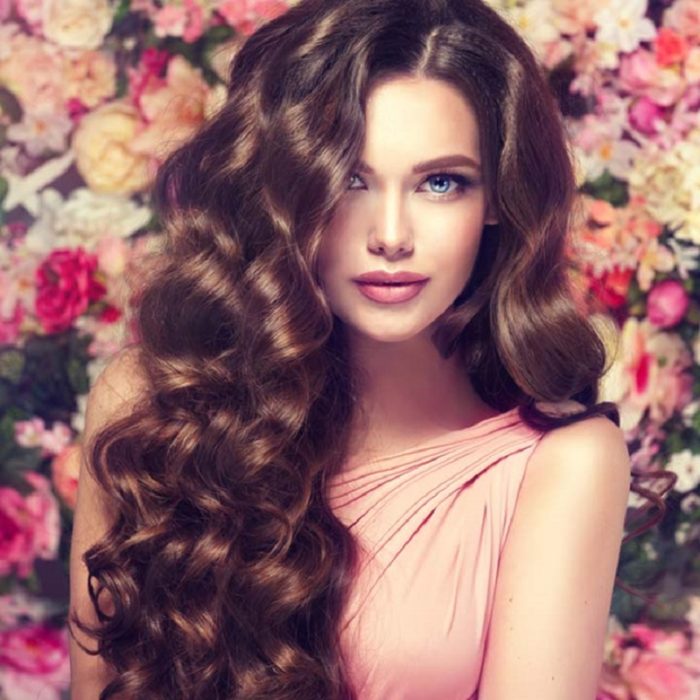Home Remedies For An Itchy Scalp
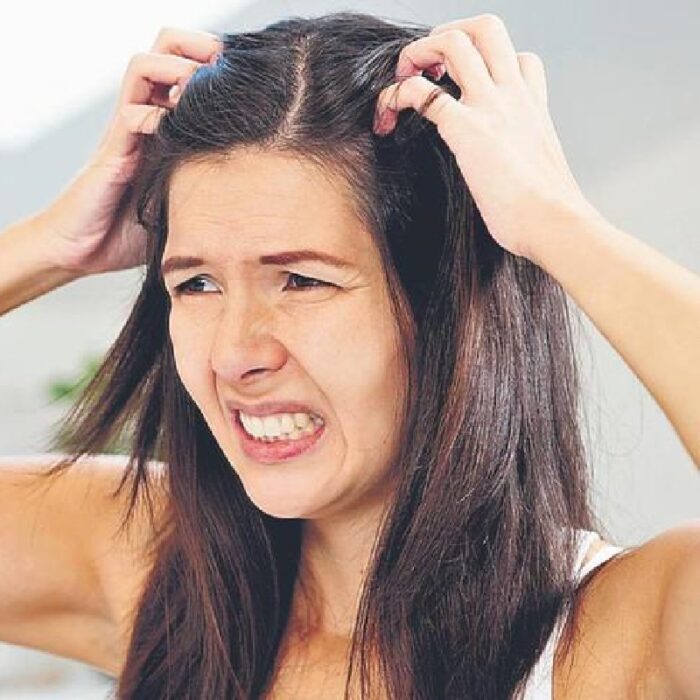
Most of us are familiar with scalp itching that especially occurs during summers. There’s a wide range of causes. Dandruff and an inflammatory skin condition called seborrheic dermatitis are the most common causes of itchy scalp. While most of us brush it off as a minor inconvenience, the condition can often turn irritating and embarrassing. But fret not – certain methods can help ease the itch and promote scalp health. Here, we have listed the top home remedies that help treat an extremely itchy scalp. These are simple to use and do not burn a hole in your pocket.
Home Remedies For An Itchy Scalp
1. Apple Cider Vinegar
How To Use?
- Dilute ¼ cup of ACV in 1 cup of water.
- Apply this mixture to the scalp.
- Leave it on for 10 minutes and rinse.
- You can do this twice a week for the best results.
Why Does This Work?
Anecdotal evidence suggests this mixture relieves an itchy scalp and inflammation. ACV has antifungal activity (1). It can help reduce scalp buildup and dandruff that may cause an itchy scalp. ACV has been found to exhibit some antifungal activity (2).
2. Organic Coconut Oil
How To Use?
- Warm the coconut oil and gently massage it on your scalp.
- You can leave it on for 20-30 minutes or overnight.
- Try this once a week before you shampoo.
Why Does This Work?
Coconut oil is a good moisturizer and is thought to soothe an itchy scalp.
It also has antibacterial and emollient properties (3). It is an effective remedy to treat lice infestation as well (4).
3. Tea Tree Oil
How To Use?
- Apply 5-10 drops of the oil directly to the scalp.
- Massage it in for a few minutes. Let it work on your scalp overnight.
- Rinse your hair in the morning.
- Repeat this twice or thrice a week.
Why Does This Work?
Tea tree oil can kill lice and may soothe an itchy scalp (5). It also moisturizes and nourishes the scalp and eliminates dryness. It contains terpenes that have antibacterial and anti-fungal properties. These may help treat scalp infections (6).
4. Baking Soda
How To Use?
- Make a paste with baking soda (2-3 tablespoons) and water.
- Apply this paste to the scalp and leave it on for 10 to 15 minutes. Rinse.
- Repeat once every two weeks.
Why Does This Work?
Baking soda has antibacterial and anti-fungal properties (7), (8). It kills the harmful microbes on the scalp that cause infection, itchiness, and hair fall.
5. Aloe Vera
How To Use?
- Remove the gel from the aloe vera leaf and apply it directly to the scalp. You can use store-bought gel if you do not have access to the aloe vera plant.
- Leave it on for 15 to 20 minutes. Rinse with lukewarm water to ensure the gel is washed off easily.
- Do this once or twice a week
Why Does This Work?
Aloe vera gel is a natural moisturizer that soothes an itchy scalp. Its antimicrobial and soothing properties also help treat dandruff and an itchy scalp (9).
6. Lemon Juice
How To Use?
- Dilute 2-3 tablespoons of lemon juice in ½ a cup of water.
- Apply this mixture all over your scalp with a cotton ball.
- Leave it on for 5 to 10 minutes and then rinse with water.
- You can try this once a week. Keep in mind that regular use of lemon juice can lighten or bleach hair.
Why Does This Work?
Lemon juice is a natural antimicrobial thanks to its acidity and phytochemicals. These phytochemicals could have an anti-inflammatory effect on the scalp (10).
7. Peppermint Oil
How To Use?
- Dilute peppermint oil with coconut or jojoba oil and massage onto your scalp.
- Wash after 30-40 minutes.
- You can try this once or twice a week.
Why Does This Work?
Peppermint oil has potent antibacterial properties (11). It is traditionally used for its cooling effect to soothe an itchy scalp.
8. Witch Hazel
How To Use?
- Mix 1 part witch hazel with 2 parts water and apply it to your scalp with your fingers.
- Massage it in for a minute or two. Leave it on for 10 minutes and rinse.
- Apply this once every three to four days.
Why Does This Work?
Witch hazel is an astringent and an antibacterial. It reduces scalp inflammation and also may treat infections (12).
9. Olive Oil
How To Use?
- Warm the olive oil and massage it onto the scalp and hair.
- Leave it on overnight. Rinse your hair as usual in the morning.
- Do this twice a week for a healthy scalp and hair.
Why Does This Work?
Olive oil contains oleocanthal and oleuropein that possess anti-inflammatory and skin-protectant properties (13) (14). These compounds may heal scalp inflammation and relieve itchiness.
10. Argan Oil
How To Use?
- Apply argan oil to the scalp and gently massage for a couple of minutes.
- Leave it on overnight. You can rinse your hair in the morning.
- Use argan oil at least once a week.
Why Does This Work?
The nourishing and moisturizing properties of argan oil have made it a favorite among hair care experts. It is also used in psoriasis treatment (15).
11.Onion Juice
How To Use?
- Peel and grate one small onion. Squeeze out the juice and apply to the scalp thoroughly with a cotton ball.
- Leave it on for 20 to 30 minutes. Rinse as usual with shampoo.
- Repeat once every week.
Why Does This Work?
The antimicrobial properties of onions may keep the scalp free of infection (16). Onion’s antioxidants may reduce any scalp inflammation and keep it healthy (17).
Note: Onion juice might cause an allergic reaction in some people when applied directly. Hence, do a patch test before using it on your scalp.
12. Eucalyptus, Lemongrass, and Lavender Oils
How To Use?
- Mix a tablespoon each of eucalyptus, lemongrass, lavender, and coconut oils and dab this mixture on the affected areas.
- Wait for an hour before washing your hair.
- Apply this once or twice a week.
Why Does This Work?
The combination of oils relaxes and soothes your scalp and hair follicles.
Lavender oil can kill lice (18). Eucalyptus oil may act against many fungi and fungal infections, including dandruff, whichis one main cause for an itchy scalp (19). Lemongrass has anti-dandruff properties (20).
13. Neem Oil
How To Use?
- Add 6-8 drops of neem oil to 2 tablespoons of coconut oil and mix well.
- Apply the mixture to the scalp and leave it on for 15 minutes.
- Rinse hair with a mild shampoo.
- You can repeat this twice or thrice a week for quick relief from an itchy scalp.
Why Does This Work?
The antimicrobial properties of neem and its extracts have been utilized for centuries. Neem oil could work by clearing the infection that causes the itchiness (21).
14. Jojoba Oil
How To Use?
- Massage the oil into the scalp and hair.
- Leave it on overnight. Rinse with a mild shampoo in the morning.
- Apply jojoba oil twice a week.
Why Does This Work?
Traditionally jojoba oil has been used for its moisturizing properties to relieve dry, itchy skin. It is believed to hydrate the scalp, thus alleviating the itchiness.
You can also use off-the-counter medicated shampoos as home remedies foran itchy scalp.
- Zinc pyrithione-based shampoos: These shampoos are known to reduce histamine levels that were found to be elevated during scalp inflammation, dandruff, and seborrheic dermatitis (22). Thus, it also may relieve the itchiness associated with these conditions. However, use these shampoos only once a week as they could be drying.
- Salicylic acid: Shampoos with salicylic acid can control seborrheic dermatitis, dandruff, and psoriasis (23). It helps dissolve and slough off dry, flaking skin that may otherwise cause an itchy scalp. You can use these shampoos daily until the condition subdues.
- Ketoconazole shampoo: Ketoconazole is an effective anti-fungal agent often used to treat dandruff (24). It may help fight yeast infections, scalp psoriasis, and scaly patches associated with an itchy scalp. Use once a week for instant relief.
- Selenium sulfide: Selenium sulfide has potent anti-fungal activity (24). It is used to treat dandruff and itchy scalp. You can use it twice a month for the best results.
Keep reading to learn the root causes of an itchy scalp.
What Causes An Itchy Scalp?
According to the American Academy of Dermatology Association, the top ten causes of itchy scalp include the following (25):
- Dandruff
- Allergic reactions to hair care products such as hair dyes
- Head lice
- Hives
- Scabies
- Scalp ringworm
- Scalp psoriasis
- Atopic dermatitis
- Nerve problem
- Skin cancer
Anxiety, diabetes, shingles, stress, hormonal changes, and certain medical conditions can also lead to an itchy scalp (26).
Consult a doctor if the itchiness worsens or lasts more than a week. Any swelling, sores or pain associated with an itchy scalp need medical attention.
We have discussed the causes of an itchy scalp and its home remedies. But wouldn’t you prefer to avoid it in the first place? Keep reading to find out how.
How To Prevent An Itchy Scalp
Addressing the causes of an itchy scalp can help manage or prevent it.
- Treat dandruff, ringworm, lice infestation, and other scalp infections.
- Moisturize the scalp so it is not dry and flaky. Use hydrating shampoos and massage your scalp with oils (jojoba, argan, olive, or coconut) for restoring moisture.
- Avoid aggressive scratching or massaging of the scalp. Avoid hot showers too.
- Limit the use of styling tools and hair care products, including alcohol-based products. Dyes, fragrances, and chemicals can also aggravate the scalp. Do a patch test to check for allergic reactions.
- Protect yourself from skin cancer by covering your head with a cap while heading out. Use products with SPF.
- Maintain hygiene by washing hair regularly and changing bed covers and pillowcases once a week. Avoid sharing combs, hair brushes, hats, helmets, and towels (also helps stop the spread of lice infestation).
- Have a dedicated hair care routine. Use products right for your hair and scalp.
- Lead a life free of stress and anxiety. Stay hydrated, and follow a balanced diet rich in iron, zinc, and proteins. Get 7-8 hours of sleep every night.
- Exercise regularly and practice yoga and meditation.
Do The Home Remedies Have Any Risks Or Side Effects?
These home remedies are generally safe unless you are allergic to any of the ingredients. If the reason for scratching is seborrheic dermatitis or an allergic reaction, it can surely worsen the condition. Talk to your doctor if you experience any allergies.
Conclusion
Scalp pruritus, or itchy scalp, is a common problem that can have multiple causes, including dandruff, lice, stress, and allergic reactions to hair products. You can use homemade remedies or OTC medicated shampoos to treat an itchy scalp. Always do a patch test behind the ear area before trying any home remedy on the entire scalp. Avoid it If you experience redness, dryness, or itching. Consult a licensed medical professional if the condition persists.








